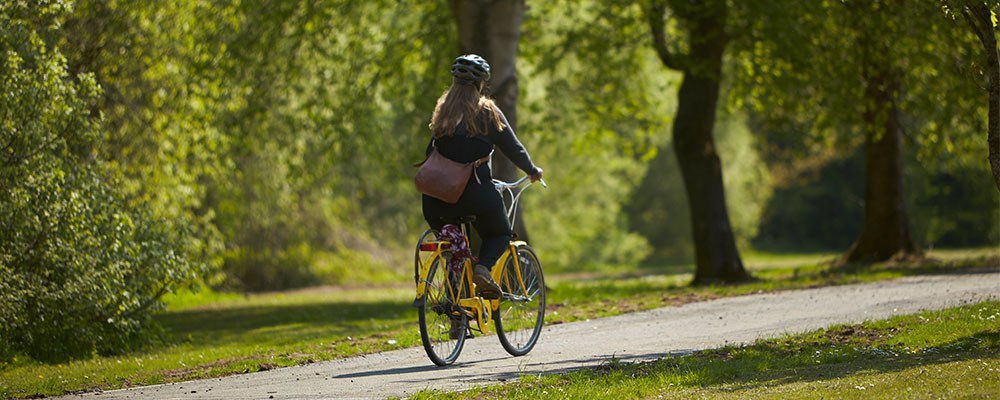
- Biennial study reveals how our views on cycling have changed since 2017
- Rise in environmental factors, increase in propensity to cycle and two-thirds think more people cycling would make Scotland a better place
- However, concerns about road safety continue to put people off cycling
Environmental factors are increasingly important and two-thirds think more people cycling would make Scotland a better place, a biennial study by Cycling Scotland has found.
Every two years, Cycling Scotland – the nation’s cycling organisation – commissions independent research, funded by Transport Scotland, to track attitudes towards cycling. More than 1,000 people (1,049) across Scotland were interviewed face-to-face in September 2019.
The study – released today (Monday 13 January) – found that almost eight in 10 (79%) people living in Scotland agreed that for the sake of the environment it would be better if more people cycled.
And the proportion of people citing the environment as a factor in why they cycle has almost doubled since 2017, rising from 12% to 22%, with women more than three times as likely to mention environmental reasons than men (39% versus 12%).
Most people in Scotland have positive attitudes towards cycling, saying that it improves health and wellbeing (92%), and that Scotland would be a better place if more people used bikes (65%).
In addition, high numbers of children continue to ride their bikes, with 61% of kids cycling weekly.
Keith Irving, Chief Executive of Cycling Scotland, said: “This research is important as it provides a snapshot of how attitudes towards cycling are changing and helps inform where to direct our efforts. It’s encouraging to see the environmental agenda influencing transport choices and people saying how cycling could help to shape a greener, cleaner Scotland. But, that said, there is a lot of work still to be done.”
Encouragingly:
- In 2017, three-quarters of people who didn’t currently cycle said they were very unlikely to cycle in the future – this response reduced to two-thirds in 2019.
- Around eight in ten (78%) children aged between six and 15 cycle at least occasionally, even if they don’t cycle to school, according to their parents (similar to 2017, 80%).
- Thirty-six per cent of people said they would consider cycling more.
However, there is still room for improvement:
- Concerns about safety put adults and kids off cycling. When asked to name the main barrier, both people who cycle and those who don’t were most likely to select safety on the roads.
- Many people (63%) agreed that their local roads are too busy to be safe for cycling and that it is not a viable way for them to travel (64%).
- Under half (43%) of Scottish households have access to an adult bike.
Irving added: “We want anyone, anywhere to be able to cycle easily and safely. As we enter a new decade, dedicated, inclusive cycling infrastructure – that reflects the various everyday journeys that people make – continues to be the biggest priority. With the Climate Emergency recognised and the eyes of the world on Glasgow and Scotland at COP26, the UN climate change summit, this November, it is more important than ever to use this evidence-based approach and get more people cycling to tackle transport-related emissions. We would encourage anyone with an interest in everyday cycling to read this research, which is available for everyone to use.”